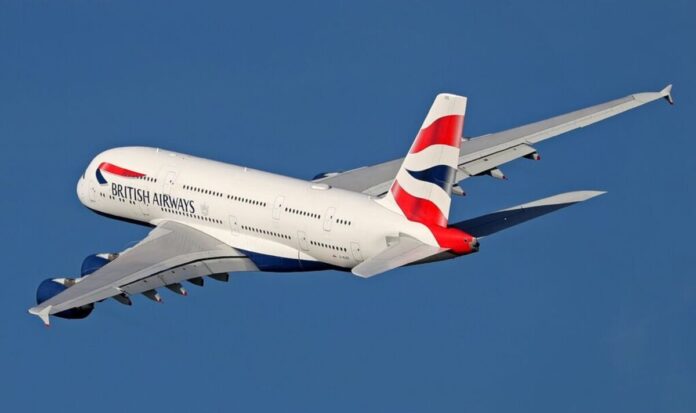The Intergenerational Foundation think tank has urged the British Government to back domestic train travel as an alternative to flying – this will cut greenhouse gas emissions from the aviation sector, it said. The organisation wants to ban internal routes that could be travelled by rail in four and a half hours or less. Research carried out by The Intergenerational Foundation showed that making domestic flights a habit of the past would result in a 53 percent reduction in CO2 emissions from all domestic aviation. It also found that almost a third of journeys are as fast or faster by train as they are plane, with almost two-thirds taking less than 30 minutes extra by train.A ban on domestic flights could mean an end to routes from London to Edinburgh and Glasgow, as well as those from Bristol to Manchester, and London to Leeds. The plane journey from Anglesey to Cardiff could also be cut.Trains, coaches, and buses are all alternative forms of transport to flying, but would the Britons who usually hop on a plane, be willing and ready to use them?Stephen Hockley, who works in travel marketing, from Plymouth, has been travelling and writing to make a living for over 10 years. Currently travelling full time as part of his job, Stephen said he has “strong opinions” about the idea of banning internal flights.For him, the problem is the lack of suitable alternatives to flying. He explained: “Though I think the idea is great, I am super against giving more power to privatised train companies.READ MORE: Pilot urges elderly passengers to avoid window seat as higher risk The UK has been urged to ban domestic flights following a similar ban introduced in France (Image: GETTY)”I think they’d use it as an opportunity to make absolute bucketloads of cash, and they’re already way too expensive.”At the time of writing, a train from Edinburgh to London, one-way and without a rail card, costs £63.40, at 6:52am on Tuesday, November 15, via Trainline. Looking at the exact same date and time, a flight from Edinburgh London costs £47, with Ryanair. The former journey takes five hours and a half. The latter? A speedy one hour and a half.Stephen continued: “So, excluding trains for most people due to the expense, we’ve got buses and coaches. I think those are great, but there aren’t a great deal of options. So, taking all of this into account, perhaps the best solution is to have alternatives so good that people naturally move away from flying. Cheaper trains, and more bus companies.”Keyna Jason, a customer relationship executive at an energy company, agreed with Stephen. Originally from Coventry, Kenya is a keen traveller and doesn’t think banning domestic flights is a viable option.DON’T MISS:Bereaved woman told to swap plane seats while sobbing over dad’s death [NEWS]Simon Calder defends ‘worst’ hotel chain praising Britannia’s low cost [EXPERT]Remainer claims she’s found loophole so she can legally stay in Europe [BREXIT] It is cheaper and faster to fly from Edinburgh to London than it is to take the train (Image: GETTY) The number of Britons using Flix has increased a huge amount this year (Image: GETTY)Claire added that “trains and cars are better and I think they should be incentivised for use over and above domestic flights”.”For instance, if companies took a lead and incentives train travel for work that would push more money into the network leading to a better experience.”The people behind Flix Bus UK, who run journeys via coach from and to various destinations across Britain, think that buses are a more than sufficient alternative to flights. Research carried out by the company found that 34 million passengers travelled with Flix between April and September this year, which was a huge 130 percent increase from last year.Flix prides itself on providing “reliable travel around Britain 365 days a year, going to over 40 destinations”. Prices for journeys also start from only £2.99.Andreas Schorling, managing director for Flix Bus UK, told Express.co.uk: “We welcome any measures that will encourage passengers to choose environmentally friendly modes of collective transport.”Coach is not just the most sustainable option when travelling long distance, it’s great value for money compared to expensive fuel costs and plane tickets. Onboarding is quick, simple, and easy, and allows passengers to travel directly from city centre to city centre.”


